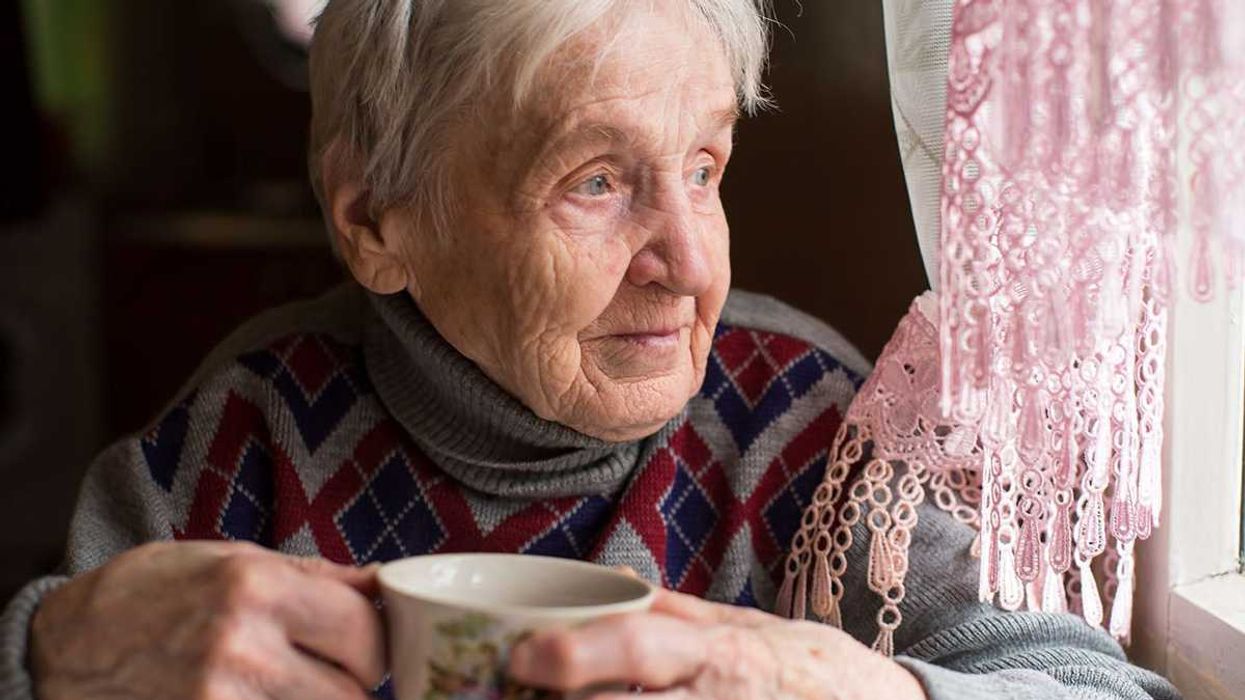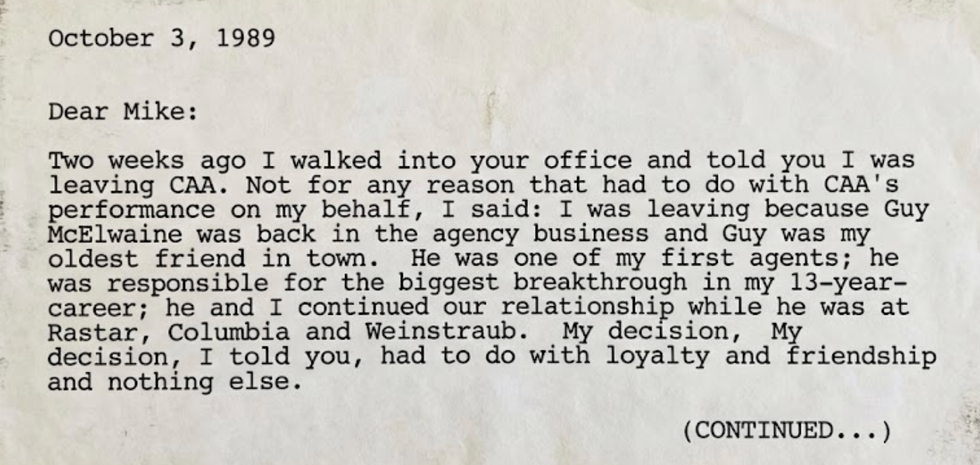On a suburban cul-de-sac, one neighbor harasseses another with a series of assaults provoked by the latter’s reluctance to come over for beer, jalapeño poppers, and murderous terror. This is the stuff that Tim Heidecker and Eric Wareheim’s Bedtime Stories are made of—horrible people being acutely horrible while denying that they’re doing anything wrong at all. It’s enough to make a Fox News reporter blush.
In a phone interview between tour dates, Wareheim does his best attempt to capture the unique, off-kilter tone of the show: “[It’s] a comedy sort of, but also pretty tense” and its modest goal is to “just try to capture these little moments of horribleness” that he and his long-time comedy partner Heidecker “hope will kind of sit with you for a bit, leave you feeling a little off.”
It wouldn’t be unfair to say that Heidecker and Wareheim have long been to “a little off” as what Lars von Trier has been to the “tortured.” But the particular blend they have concocted with Bedtime Stories elicits more of a re-orientation to societal problems than it has ever before.
[quote position="left" is_quote="true"]The duo’s visceral horror show of dying bodies comes across as a contemporary take on the sliced eyeball in Luis Buñuel and Salvador Dali’s silent, surrealist short film Un Chien Andalou. Only hilarious.[/quote]
Heidecker and Wareheim, of course, gained a cult following with their Adult Swim show Tim and Eric Awesome Show, Great Job!, using spot-on mimicry to lampoon the worst parts of amateur television culture. From sketches about sexualized public-access beauty pageants for middle-aged men to prolonged versions of disastrous early-‘90s infomercials for useless appliances, Awesome Show delved into weirdness while remaining firmly in the realm of comedy. Says Wareheim. “We’re very calculated [in] how we write things. People consider our things wacky. ‘You guys do acid to come up with this shit?’ No, everything is based on reality in some way.”
In its first season for Adult Swim, Bedtime Stories pushes the duo into darker, stranger, and perhaps heavier territory. Where Awesome Show was aimed to be a “nightmare version of television,” in the words of The New York Times, Bedtime Stories springs from the nightmares of its creators. The series, which premiered September 18, isn’t straight up horror—it also captures Heidecker and Wareheim’s signature blend of absurdism.
Most comedy today, Heidecker says, is created by people who “graduated from Harvard with more money than they know what to do with. [That comedy] reflects their world, a very beautiful place.” In contrast, Heidecker says that the tone he and Wareheim construct is “showing a society that isn't all good-looking, smart, clever people.”
According to Heidecker, most popular entertainment aims to “create a fantasized version of life.” But pushing this idealized view on our current society—struggling with extreme economic inequality, dire warnings about climate change, and an unjust justice system—is like Heidecker’s character from “Hole,” the first episode of Bedtime Stories, saying he’s just joking while forcing Wareheim’s character into his own grave.
Because for Heidecker and Wareheim, everything is not ok. “Life is not getting any better; people are getting worse, unfortunately,” says Wareheim. Heidecker puts it more succinctly: “Don't you feel like the world is a fucked-up place? I do.”
Bedtime Stories brings us face to face with the ugliness of our society, whether it’s putrid fowl or patriarchal bro culture, and “these little bits of horribleness” will linger with us, leaving us “feeling a little off,” hopes Wareheim. And maybe these uncomfortable notions are the things that society should really spend more time thinking about.
Wareheim and Heidecker grew up in suburban Pennsylvania, and so not surprisingly, Bedtime Stories has a particular fascination with the bleak, dark side of modern, middle-class life. “Living in the suburbs, having these weird, creepy people live in the neighborhood and you really didn't know who they were,” says Wareheim. Bedtime Stories “is sort of our comment on that—suburban living.”
Suburbia used to be the American dream, but Bedtime Stories depicts it as a nightmare place where local denizens murder unarmed teenagers or hide sex dungeons in their basements. Bedtime Stories zooms in on the disgusting so thoroughly that you can’t help but feel it. There are close-ups of putrid maggots crawling through a rotten turkey and of toes being snipped off. The duo’s visceral horror show of dying bodies comes across as a contemporary take on the sliced eyeball in Luis Buñuel and Salvador Dali’s silent, surrealist short film Un Chien Andalou. Only hilarious. “What we think is funny are the things that happen to people—you know, like death, things that happen to your body,” says Wareheim.
Wareheim and Heidecker are able to do all of this without sacrificing goofy little asides, which allows Bedtime Stories to occupy a space somewhere between comedy and horror—and if the result seems ridiculous, all the better. The fact that the comedy team mixes the spirit of the comic with the spirit of the absurd doesn’t escape Wareheim. But, he notes, “I think when you combine the two sometimes magic can happen.”

















 Two people study a mapCanva
Two people study a mapCanva Foggy Chinese villageCanva
Foggy Chinese villageCanva

 Older woman drinking coffee and looking out the window.Photo credit:
Older woman drinking coffee and looking out the window.Photo credit:  An older woman meditates in a park.Photo credit:
An older woman meditates in a park.Photo credit:  Father and Daughter pose for a family picture.Photo credit:
Father and Daughter pose for a family picture.Photo credit:  Woman receives a vaccine shot.Photo credit:
Woman receives a vaccine shot.Photo credit: 
 A young lion playing with an older animal
A young lion playing with an older animal A colorful bird appears to be yelling at it a friend
A colorful bird appears to be yelling at it a friend An otter appears like it's holding its face in shock
An otter appears like it's holding its face in shock Two young foxes playing in the wild
Two young foxes playing in the wild Two otters appear to be laughing together in the water
Two otters appear to be laughing together in the water A fish looks like it's afraid of the shark behind it
A fish looks like it's afraid of the shark behind it A bird appears to be ignoring their partner
A bird appears to be ignoring their partner A squirrel looks like it's trapped in a tree
A squirrel looks like it's trapped in a tree A bear holds hand over face, making it appear like it's exhausted
A bear holds hand over face, making it appear like it's exhausted A penguin looks like its trying to appear inconspicuous
A penguin looks like its trying to appear inconspicuous A young squirrel smells a flower
A young squirrel smells a flower An insect appears to be smiling and waving at the camera
An insect appears to be smiling and waving at the camera An otter lies on its side apparently cracking up laughing
An otter lies on its side apparently cracking up laughing Two monkeys caught procreating
Two monkeys caught procreating A young chimp relaxes with its hands behind its head
A young chimp relaxes with its hands behind its head A snowy owl appears to be smiling
A snowy owl appears to be smiling  A monkey holds finger to face as if it's lost in thought
A monkey holds finger to face as if it's lost in thought A turtle crossing the road under a 'slow' sign
A turtle crossing the road under a 'slow' sign A polar bear lies on its back like it's trying to hide
A polar bear lies on its back like it's trying to hide A rodent strikes human-like pose
A rodent strikes human-like pose
 An excerpt of the faxCanva
An excerpt of the faxCanva

 Robert Redford advocating against the demolition of Santa Monica Pier while filming "The Sting" 1973
Robert Redford advocating against the demolition of Santa Monica Pier while filming "The Sting" 1973